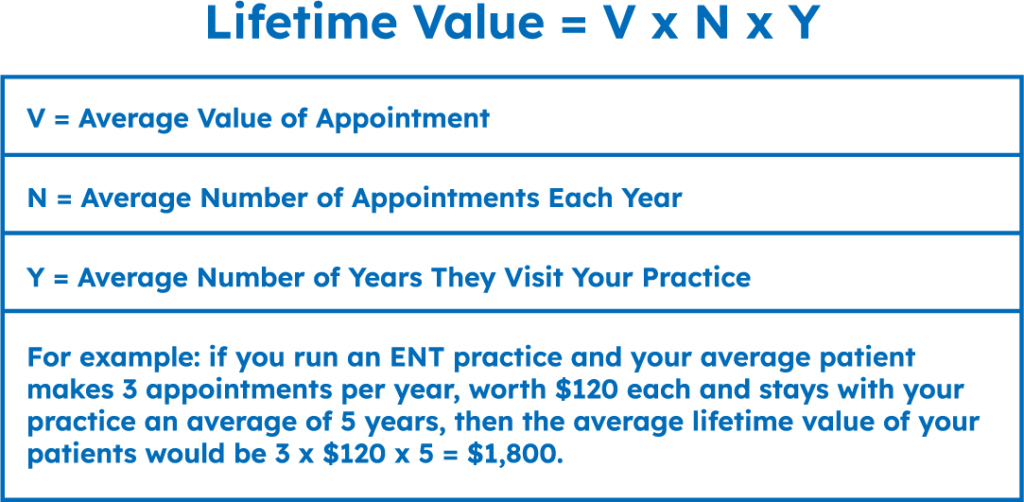Marketing has evolved to heavily rely on sophisticated tools that streamline operations and enable precision targeting as well as detailed campaign tracking to enhance audience engagement, boost efficiency, and, finally, increase marketing ROI.
However, marketing technology has been lagging in healthcare due to the strict privacy laws and HIPAA requirements. Luckily, there are now many options to help your healthcare organization benefit from all things digital
Chances are, you’re here because you’re finally taking a leap and trying to decide which CRM to choose for your healthcare organization, and you might be feeling a bit overwhelmed and not quite convinced to give one of these brilliant tools a chance. No wonder: traditional CRM systems often prove to be an expensive and complex solution.
Many providers need an alternative to a CRM in healthcare that is affordable, user-friendly, and yet comprehensive. Let us help steer you in your desired direction with this somewhat elaborate checklist, or, if that sounds more digestible to you at the moment, a very quick guide. Diving in!
 Why Typical CRMs Might Not Be A Good Match for Your Healthcare Organization
Why Typical CRMs Might Not Be A Good Match for Your Healthcare Organization
Typical CRMs, while powerful, come with significant costs and complexity, making them less attractive for the healthcare industry.
Large hospitals often spend millions annually on these systems, which include patient targeting capabilities that are difficult to navigate and maintain, and yet don’t pay off at the end. These systems require dedicated staff to manage them, which adds to the overall expense.
To add salt to the wound (pardon our medical pun), most popular CRM tools used across a myriad of industries don’t (fully) apply a HIPAA-guided mindset. Mid-level hospitals and large practices often lack the resources to afford such systems and the staff to manage them, so they end up manifesting a more cost-effective and simpler solution.
Healthcare-specific marketing platforms, designed to be more affordable and user-friendly, will offer you all the necessary functionalities without the financial and operational burden of traditional CRMs.
How to Choose an Alternative to a CRM in Healthcare: Here’s The Trick
It’s quite simple, really: when choosing an alternative to a CRM in healthcare, you should list and consider all the key factors to ensure the platform meets your needs effectively. Knowing you’re quite busy saving lives, we took the liberty of putting the list together on your behalf:
The Platform Must Be HIPAA-Compliant and Ready to Sign a BAA
HIPAA compliance is non-negotiable for any platform handling patient data. Ensuring that the platform strictly follows HIPAA regulations protects patient privacy and avoids legal repercussions while guaranteeing you’ll get what you pay for instead of having limited access to advanced (and often crucial) functionalities due to compliance concerns.
Important: the platform provider should be willing to sign a Business Associate Agreement (BAA), which legally binds them to safeguard patient information and protect you from any liability in the event of an error on their behalf.
The Platform Should Streamline Marketing Strategies Suitable for Healthcare
While you can try and test each and every marketing trick in the book, there’s a list (of course there is!) of the tried and true strategies that should be the driving force of your healthcare marketing approach. Therefore, the healthcare marketing platform you choose as an alternative to a CRM should support these crucial healthcare-specific marketing campaigns, including reputation management, local SEO, patient surveys, and targeted advertising.
What to Look Out for in Healthcare Reputation Management Features:
Effective reputation management is crucial for healthcare providers looking to build trust, increase online visibility, and get more patients through modern marketing channels. Key features to look for in a healthcare reputation management system include:
- Automated Review Requests: Automatically send review requests to patients via SMS and/or email post-appointment to increase the number of reviews across a variety of platforms.
- Multiple Listings Management: Ensure your practice’s information is consistent across various online directories.
- Unified Management: Manage reviews from multiple platforms in one place to streamline the process and improve efficiency.
- HIPAA-Compliant Reply Template Library: Use pre-approved templates to respond to reviews and engage with the patients while maintaining compliance and saving time.
 Don’t Settle for Less: Look for HIPAA-Compliant Predictive Targeting in Healthcare
Don’t Settle for Less: Look for HIPAA-Compliant Predictive Targeting in Healthcare
Predictive targeting can significantly enhance marketing efforts by identifying and attracting high-value patients for specific service lines. Given the stringent HIPAA regulations, it’s vital that the platform provides HIPAA-compliant predictive targeting.
Using data analytics to predict patient needs and behaviors and allow for more personalized and effective marketing strategies is challenging in healthcare, so you may be prevented from using these features within CRMs that aren’t properly configured to healthcare marketing.
Look for software that offers precision targeting based on geolocation and specific services or service lines. Integration with social media advertising based on generated audience lists and postcard targeting capabilities will let you manage the campaigns in one place and track conversions and costs with precision.
The Platform Should Offer Seamless Integrations with Your PM/EHR Systems
For seamless operations, healthcare marketing platforms should integrate smoothly with Practice Management (PM) and Electronic Health Records (EHR) systems. Integration ensures that patient data flows effortlessly between systems, enhancing efficiency and reducing administrative workload. Healthcare-oriented platforms allow for conversion tracking and data analytics in a HIPAA-compliant way, which is often not the case with other, non-healthcare-oriented tools.
The Platform Should Offer Patient Survey Automation
Automated patient surveys isn’t a nice-to-have anymore: it has become a necessity, particularly with Patient Reported Outcomes (PROs) for Total Knee Arthroplasties (TKAs) and Hip Arthroplasties (HKAs) becoming mandatory in 2025.
Automated surveys help gather valuable patient feedback, improve care quality, and ensure compliance with upcoming regulations. Automating and enhancing user experience in survey collection can increase response rates and provide more comprehensive feedback, while automated data segmentation and reporting can further help in analyzing survey results to improve patient care, apply patient feedback, and promote a patient-centric approach.
So, which surveys should you look out for?
Key surveys we advise you to focus on include the following:
- Net Promoter Score (NPS): Measures patient loyalty and satisfaction.
- Patient-Reported Outcomes (PROs): Essential for tracking clinical outcomes from the patient’s perspective.
- Consumer Assessment of Healthcare Providers and Systems (CAHPS): Evaluates patient experiences with healthcare providers.
The Platform Should Have A Comprehensive, User-Friendly Reporting System
A robust reporting system is crucial for tracking the success of your marketing efforts, knowing how your money is being spent, and determining what you can do to get more value per dollar. Look for features like detailed reporting, marketing attribution, conversion tracking, and KPI reporting. These tools provide insights into campaign performance, helping you optimize and prioritize well-performing strategies and achieve a higher healthcare marketing ROI.
While tracking impressions, visits, clicks, and likes can have benefits, the main KPIs you should track to truly understand the impact of your marketing include the following:
- Healthcare Marketing Return on Investment (ROI): This metric accurately measures the profitability of your marketing efforts.
- Patient Acquisition Cost (PAC): This metric tracks the cost of acquiring new patients via different channels.
- Lifetime Patient Value (LPV): This metric estimates the total revenue a patient will generate over their lifetime with your practice.


 The Platform Should Offer Paid Search Advertising
The Platform Should Offer Paid Search Advertising
Brand advertising on search engines, particularly Google, is a significant aspect of healthcare marketing. This helps you ensure more visibility on critical ‘near me’ searches and protect your brand from other advertisers. Streamlining these campaigns through a platform rather than directly through Google Ads can offer several advantages:
- Consistency: Ensure consistent messaging and branding across all ads.
- Efficiency: Manage all ads in one place, saving time and reducing complexity.
- Optimization: Use platform-specific tools to optimize ad performance and improve targeting.
- Tracking: Follow the patient journey in a centralized system and apply marketing attribution and KPI tracking principles to further optimize the performance.
Evaluate The Platform’s User Experience and Customer Support
An intuitive user interface and excellent customer support can significantly impact the usability of the platform. Ensure the platform is easy to navigate and that the platform provider offers comprehensive support, including training, troubleshooting, and ongoing assistance.
A user-friendly interface minimizes the learning curve, while reliable support ensures any issues can be promptly resolved, maintaining the smooth operation of your marketing efforts.
Assess The Platform’s Cost and Scalability
Evaluate the cost structure of the platform to ensure it fits within your budget. Consider both the initial investment and ongoing expenses, including subscription fees, training costs, and potential add-ons. Browse through their case studies and pay attention to their past and current clients’ ROI and growth: if a platform provider can confidently promote specific ROI growth, you should show interest.
Additionally, assess the scalability of the platform. As your practice grows, the platform should be able to scale with your needs, offering additional features or higher capacity without requiring a complete system overhaul.
Chasing High ROI: The One Platform That Has It All
Choosing the right platform for your healthcare marketing needs can be challenging, but it is crucial for success. A comprehensive solution that integrates all necessary features can save time, reduce costs, and improve patient engagement. Marketers often prefer a single, centralized platform over juggling multiple tools for different tasks.
SocialClimb’s comprehensive healthcare marketing platform meets all these requirements: this HIPAA-compliant solution supports various campaign types, provides predictive targeting in healthcare, integrates with all prominent PM/EHR systems, automates patient surveys, and includes a detailed reporting system and KPI tracking. Relying on our platform, healthcare providers can streamline their marketing efforts, attract high-value patients, and ultimately enhance their practice’s growth and patient satisfaction.
Get in touch with us today to schedule a demo and review this CRM alternative that proudly checks off all the boxes on the list!











